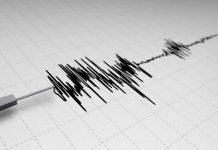Everyone, who can do anything and wants to make a profit from it, is looking for a job. And these are people of completely different professions who are employed in completely different areas. In particular, those who know how to weld. Such a job is an important and indispensable link in such areas as industry and construction, and without such specialists, the performance of this work will be very difficult, and most likely completely unrealistic.
And in order to get such a job, both at home and in the UAE, people often use the Internet, where they find suitable vacancies with the help of special sites. In order to search for work abroad from India, you can safely use the website https://layboard.in/vacancies/jobs-in-kuwait. It’s convenient, intuitive and you’ll most likely be able to find something good for yourself.
Who are welders and what do they do?
This is a fairly common work, which not everyone considers important and worthy, and in vain. Perhaps, this is due to the fact that in order to obtain this profession, you do not need to study so much. But nevertheless, most things that are made of metals most likely went through the process of some kind of fusing. Therefore, this profession is very relevant and in any place on earth, good specialists will be greatly appreciated.
Welders perform tasks related to joining metal parts using various types of welding such as arc, gas or spot welding. Good workers in this area, in addition to mastering the above techniques, also work with a variety of materials including steel, aluminium, stainless steel and many more. They often work from drawings and technical specifications to ensure the correctness and quality of the welded joints, otherwise, a job done incorrectly can be very unsafe.
Working as a welder needs some experience and good skills in the field of metal preparation, setting up welding instruments and performing fusing works. Usually, workers receive all this at the stage of learning the craft. Welders must be attentive to detail and follow all safety standards to avoid injury and ensure quality work.
Such workers may also perform additional tasks such as repair and maintenance of welding instruments, quality control of fused joints, and preparation of welding documents. The job of a welder can be physically demanding, requiring good physical stamina and the ability to work in a variety of conditions such as high temperatures or confined spaces.
Where can welders work?
Skilled welders are in demand in many industries such as engineering, shipbuilding, and automotive, as well as in construction and infrastructure projects. Despite not very pleasant stereotypes, in fact, working as a welder provides some chances to develop a lot of useful skills and advance in a career. Additional education for welders and certification can help improve their skills and expand their professional capabilities. In turn, this will affect the amount of wage.
Why do we need safety rules and why do you need to follow them?
Safety rules for welders, as well as for various other workers, are an extremely important aspect of activities. All rules are developed to ensure optimal working conditions, protect the health of those who work and prevent possible industrial accidents or unforeseen situations. Here are some examples of why it’s important to follow safety rules in the workplace:
- Safety rules contribute to the protection of the life and health of welders. Working near high temperatures, sparks and hazardous materials presents certain risks. Compliance with the rules minimizes them, as well as the risk of serious injury.
- Compliance with rules reduces the probability of accidents and damage. Mistakes or insufficient awareness of all safety in welding work can cause bad consequences that can directly threaten the life of the worker.
- Safety rules contribute to ensuring sufficient quality of welding work. The job of a welder requires high precision and professionalism in order to create reliable and durable welded joints that will not break down over time. The safe performance of welding operations helps to avoid defects and damage, which also improves the quality and durability of structures and products that the welder has worked on.
- All types of rules must ensure compliance with welding codes and standards. In various countries and industries, there are certain rules and standards governing the safety of fusing work, which must be strictly observed.
- Safety rules create a protected working surrounding for welders and bystanders. Proper organization of the workplace as well as restricting access by unauthorized persons helps to minimize risks and create conditions for safe and high-quality work.
Following all the rules can be a little tiring and sometimes even somehow complicate or slow down the process. But nevertheless, by observing them, the employee can be sure of what he’s doing. There is also a famous expression that says that all safety rules are written in blood, and this is an absolutely true expression. At a minimum, this should already be a good reason for compliance.
Here are a few key steps to follow:
- Before starting work, you should carefully read the equipment manufacturer’s instructions and, if possible, receive appropriate training in the safe use of welding equipment and tools.
- Be sure to use the prescribed personal protective equipment such as goggles, helmet, gloves and protective clothing.
- Work in a well-ventilated area or use mechanical ventilation to avoid inhaling harmful fumes and gases generated during the fusing process.
- Prepare the work area by making sure that it is free from flammable materials and that there’s no danger of gases or other hazardous materials which can explode.
- Before use, check the condition of the welding apparatus and tools that you’ll work with.
- Limit the access of unauthorized persons to the work area, as welding work can be dangerous to others.
- Avoid working near explosive atmospheres such as explosive gases, vapours or liquids.
- Frequently clean the welding area of metal waste, combustible and other hazardous waste.
- Have a fire asphyxiator near you and teach yourself about emergency evacuation plans and exits that can be used in the event of an accident.
- Be aware: When working with electricity, make sure all electrical connections and cables are in good condition. Avoid contact with wet surfaces and ensure that grounding is available.
It’s some of the common and basic safety rules for welders. Acquiescence with these steps helps welders work in a safe surrounding, avoiding possible hazards and accidents.
Follow Us
The Kashmir Pulse is now on Google News. Subscribe our Telegram channel and Follow our WhatsApp channel for timely news updates!











